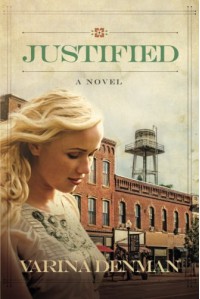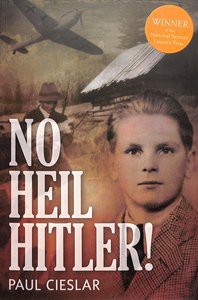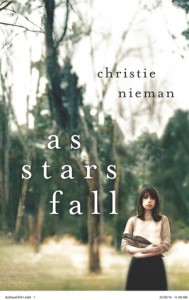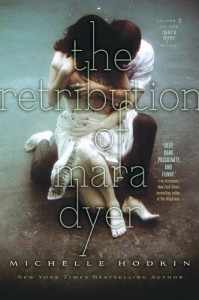My Journey in Writing
My name is Lynne Stringer and I love writing! Of course, that’s not all I love. I also love reading books, especially ones that take me out of the every day and into a new world. It doesn’t have to be a completely imaginary world, either. Anything with fascinating characters and interesting storylines will do. My first young adult novel, The Heir, was accepted for publication by Wombat Books and released on 1 June 2013. It is the first book in the Verindon trilogy. It’s so exciting to have a real copy of my book in my hands.

While some people deny climate change, this book makes a compelling case for believing in it. Not only that, but it makes it clear that something must be done now or our planet could suffer extreme consequences within a few decades.
Each of the book's chapters contains the story of an ordinary Australian citizen, all from different walks of life, who have one thing in common - a passion for seeing a 100% change to the use of renewable energies NOW, with no further use of fossil fuels.
That fossil fuels are damaging our planet is something most people acknowledge, but if this book is correct, the situation is much more dire than most of us realise.
While I'm sure there will be alternate arguments to what is presented in this book, I still think it's a valid read and I would like to hear the arguments against what the book details, as I can't imagine them being more compelling. It is extremely convincing and deserves to be taken seriously.
 1
1

Charisma took a while to get going. It didn't really engage me until about a third of the way through. I think the main reason for this was that a bit too much time was spent on Aislyn's crippling shyness. Now, this shyness is integral to the story the book is telling, however, I think the point would have been made quite adequately in fewer scenes. It's never easy to read chapter after chapter from the point of view of a person who is constantly down on herself and failing (in her eyes) in everything.
However, after that, it came into its stride and the story was an entertaining and thought-provoking one. Cases are presented both for and against gene therapy, with a clear message of 'make sure it's done correctly if you're going to introduce it' coming through. I liked the issues it raised, and also that the characters were realistic ones. No one was perfect, not by a long shot, but I empathised with Aislyn and enjoyed following her journey.
 1
1

I can remember trying to read <i>Five Children and It</i> when I was about ten or so. It didn't engage me, so I quickly gave up, moving on to other books.
When I first started reading this book, which is a sequel to the popular classic, I had a similar reaction. I was about a third of the way through it before it really started to engage me.
The style throughout is reminiscent of another series I read, with the language and behaviour of the children bringing back memories of the Famous Five books I loved as a child. It's very early 20th century English, with lots of words like 'rather' and 'good-oh'.
I think the book is primarily written for the Famous Five age group, although some of the topics dealt with are serious ones. It does, after all, take place during World War I, and a couple of the main characters go and fight, and yes, there is tragedy involved, so it may be upsetting for some young readers, even though there is nothing graphic in it.
One thing in the book I really didn't like, and that was the Psammead, the little sand fairy that was the 'It' of the original book. I don't know whether it's a carry over from that novel or not, but the creature is, in all honesty, just plain annoying. The majority of the book is just him moaning and complaining all the time as he is taken to other times and place so he can learn he needs to feel sorry for certain things he has done in his life (this is the heart of the story).
While he does make some progress in this area, it's a long time coming and he whines a bit too much for my liking. I got the feeling his behaviour was meant to be funny but I found I was too frequently tempted to 'box his ears', to borrow another phrase from my Famous Five days, and that made the read less enjoyable for me.
 1
1

In Bound, author MJ Stevens has created a fascinating world. Mellea Wendorn lives in Selestia, where the Guardians rule. A chance encounter with one of them means she is selected to be his bride and there's not much she can do about it.
The novel follows this scenario, introducing us the the haughty Guardians and their powers, and the evil enemy that is (of course!) fighting against them.
Along the way Mellea faces a personal crisis which made her all the more interesting and real to me.
This world is a great one to inhabit and MJ Stevens shows a clear ability for story telling. Unfortunately, there are numerous spelling problems throughout the novel, but it's a testament to the entertaining nature of the story that the editor in me didn't care about that. I was too busy seeing what came next.
I will definitely be checking out the sequel.
 1
1

I don't think I enjoyed Justified quite as much as Jaded, but it was still good. It was fun to see the development of Fawn's character and JohnScott's too, however, as their relationship progressed, the tug back and forth between JohnScott and Tyler became a bit too much. That JohnScott would assume Fawn was back with Tyler given what he saw was a step up from an assault, and wouldn't even consider talking to her for days afterwards until he was forced to, seemed a bit much.
However, it was still an engaging read. I'll have to keep an eye out for more books by Varina Denman.
 1
1

Last Train from Kummersdorf seems to be a realistic account of what life was like for a German at the end of World War II. I had no trouble believing in the brutality and trouble faced by Hanno and Effie as they try and find somewhere that is safe. The book certainly held my interest, although I must confess I found the writing a trifle mechanical. It gave the book a robotic feel that made it difficult for me to truly feel for the characters and the circumstances they were in. Of course, this may have been a good thing, as the situations they were in were frequently horrifying, but I would have liked to have been able to feel closer to them during their journey.
 1
1

**spoiler alert** I found this story generally well written and engaging. The only thing that spoiled it for me was the inclusion of sex and profanity.
For the most part, I was interested in Callie's story and seeing how it turned out. Callie, who has been living with her mother for years under the mistaken belief that they had no one else, discovers that her mother kidnapped her years before, taking her away from her loving father and his large Greek family. When the police catch up to them, Callie is understandably cautious with her remarried father’s new family at first, but goes on a voyage of discovery, both for herself and her mother (who is diagnosed with a personality disorder).
These issues are dealt with sensitively by the author and in what I felt was a realistic way. While I grew frustrated with things like Callie's constant defending of her mother by lying and covering up for her, I felt that it was likely she would have responded that way, given that it had only been the two of them for so long.
The only thing that spoiled it for me was the profanity and sex. Again, I understand why Callie would think that every guy wants sex, given her mother's behaviour, and that she definitely would be the type who'd seen that kind of action, but I was disappointed that her serious love interest in the story was the kind of man who'd sleep with a girl at first sight (as he does with Callie) without even knowing who she is. This, and a couple of other scenes paint him as a player, and yet it seems we're meant to believe in the reality of their love. I found it difficult to swallow and didn't like Alex at all. I preferred the scenes when he wasn't around. Even the situation with his mother didn't gain him much sympathy from me although I was pleased that plotline was resolved the way it was.
 1
1

This is the first time I have tackled Anne Frank, as there is a bittersweet notion to this story when you consider how it ends. It is especially tragic when you realise that Anne and her family, along with four others, lived reasonably normal lives for two years in their secret home in her father's warehouse. Also, the fact that their lives ended so close to the close of the war makes it even more poignant.
Anne Frank, who had dreams of becoming a writer, shows that she has a great skill for it. Even the most mundane activities become interesting with her telling, and the fact that she could keep her story interesting throughout this work when her family never once went outside their hiding place is a testament to her talent.
While the book begins with her as a moody teenager, over the course of her story, it becomes clear she is maturing. She still has fits of moodiness, of course, but considering her life is at risk, requiring her to live inside and hidden from the world around her, it's no surprise she was moody and depressed. Surviving in such a situation for so long would take a lot of strength.
This may be officially for young readers but if you haven't tried Anne Frank's story yet, this may be a good place for you to start.
 1
1

There was a lot of ground to cover in this book and I felt it was a bit slow at the start while the scene was established. Also, sometimes I felt there were scenes that were explained insufficiently. There were times when it took me a few reads to get exactly what Richardson was trying to say, especially in the depths of the action.
Having said that, his characters and their adventures were engaging and his writing style was witty and entertaining. I enjoyed reading about the adventures of Anni Tidechild and Duck Knifetooth, although I wish this book had a stronger resolution. The climax was more a series of little happenings and only a handful of the questions raised in this book were resolved by the end of it. The rest will be carried over into its inevitable sequel.
 1
1

This book was a wonderful telling of small town church prejudices and judgementalism and the mess it can cause.
From the start I liked the female protagonist, Ruthie Turner, in spite of how prickly she could be. She seemed to have a right to be and I could understand her rejection of the church. I liked Dodd too, although his belief in the honesty of certain people did annoy me. However, as he was a newcomer in town (and because he was a nice guy), I could understand why he thought that way. It wasn't like it is in some novels, where the truth is so obvious the book becomes frustrating because everyone but the protagonist can easily see what was going on. In this case, the truth was hidden amongst lies and pride.
I enjoyed the way the novel progressed, which was natural and felt organic. I liked the foreshadowing and how the climax came about. My only complaint is that I thought the resolution was too brief. I would have liked a little more at that point.
But it was a good read and I will be checking out the sequel.
 1
1

Matthew Dickerson's world, as featured in The Gifted, is involved and intricate and it's clear a lot of work has gone into creating it. I enjoyed reading about Elynna and her band and the troubles they faced in defeating the evil in their world ... or trying to, anyway. I liked that the protagonists were not the usual cardboard cutouts that can be seen in books like this, but were real characters with clear faults, and traits that sometimes make me frustrated with them, which, of course, made them more realistic.
The main downfall of the book, from my point of view, was the excessive detail. I appreciate world-building and I know it's necessary in a book like this, but the level of detail that was featured slowed the pace of the story constantly. I loved learning about the world of Gondisle, but I think sometimes all that information weighed the story down more than it buoyed it.
I did enjoy seeing the way the story went, though, and I'd be interested in reading a sequel when it's out.

No Heil Hitler! is a fabulous autobiography. Author Paul Cieslar tells of his experiences in Poland from the time the Nazis invaded until its liberation, and then of his experiences in Communist Poland.
Paul and his family, who were Adventists, were targeted often because they worshipped God on a Saturday. This similarity to the Jewish people was noted by the Nazis and it made life difficult for them and other Adventists. Paul does not sugarcoat his story. The brutality of the Nazis is laid bare for all to see. People are taken away, shot, murdered, tortured. Lives are ruined, families torn apart. It is confronting and often unpleasant reading but gripping and compelling, especially as he and his family rely on God's grace in the midst of appalling evil.
Highly recommended.
![By Melanie Dickerson The Princess Spy [Paperback] - Melanie Dickerson](http://booklikes.com/photo/max/200/300/upload/books/1/f/1f9c85a8bdba4ad21c0f045ae3c20a71.jpg)
***spoiler alert***I found The Princess Spy very enjoyable. The characters were likeable and not necessarily ones that were instantly predictable. Margaretha, the female protagonist, comes across as a bit of an airhead, but proves that she is more than meets the eye. I liked Colin as well, the male protagonist, although he was a bit more run-of-the-mill male hero material, although still likeable.
The story moved along well and I liked the villain; he was suitably slimy. The story wasn't always predictable either, which was another good thing and I enjoyed going where it led me.
There was only one section that I felt was illogical. That was when they went back to the castle to overthrow Lord Canterbury and Margaretha's father allows her to come as long as she stays at the back with Colin! Given that Canterbury has been trying to catch her to force her to marry him or kill her if she refuses, the idea of letting her go when she's already narrowly escaped him twice seems a bit unlikely. I can't imagine someone like Duke Willhelm agreeing to something that put his daughter in that kind of danger and as soon as he agreed to it I had the same feeling many people get when someone heads down a dark and gloomy corridor by themselves in a horror movie. You know something's going to happen.
But apart from that I found it entertaining.

This book was ambitious and had so much potential to be a great novel but it seemed to get in the way of itself. The continual changing of point of view, both in style and in characters, slowed it down, and combined with excessive and sometimes repetitive descriptions, and intense and long internal musings, made for a difficult read.
A lot of information is given about the environment and endangered species, such as the Bush Stone-curlew, a native Australian bird that is featured throughout the book. While that is interesting, the way it's written makes the book move slowly, and considering the heavy emotional states of the characters, it is not an easy journey.

Right from the start of this book I felt there was something missing, even though I liked Kasper and Izolda as characters.
However, I found a number of the plot developments unconvincing. Kasper saves a prisoner who he believes is an evil witch who can turn him to stone with one look and who is desperate to destroy his land. Why? Because he has a vision that indicates she is not what she seems. He has no history of visions or anything around him to indicate that it might be real, however, he instantly sets about trying to rescue her. The explanation given for this is that he is 'reckless', but even then, given the information he was raised with about this prisoner, I would have found it more convincing if he at least took a day or two to think about it. Accepting the vision as instantaneously as he does seems to be a bit of a stretch.
This stretch is a theme that is repeated numerous times in the book, with a couple of character about-faces that were a bit too fast to be believed. The explanation for one is given as magic. Many things in this novel were explained away as magic. Normally, I wouldn't have a problem with this, as in worlds where there is magic it is used in this way, but the way it was employed here seemed to be as a convenient plot device to get the protagonists out of trouble, rather than feeling like an organic part of the storyline.
The climax also felt a bit piecemeal, not to mention the frequent long scenes of exposition as the plot was explained. There were also plot points that I felt weren't given sufficient explanation, so the resolution didn't feel satisfying to me.
However, it was still a nice, fun romp and had some interesting developments along the theme of forgiveness, mercy and restoration.

I struggled with whether or not to give this book three or four stars, as it does have serious problems, however, other elements fascinated me. It was a difficult decision to make.
There are definitely some plot problems, or perhaps unresolved issues would be a better way to word it. And here I will get into detail.
For a start, in spite of Jamie's gift, I can't accept that all that happens in the book can just be swept under the carpet so these kids can go on with normal life (or as normal as it gets for them). For a start, David Shaw wanted Mara dead so his son can live to his full potential. There's no evidence that he did what he did just to help Mara manifest completely. In fact, he seems clear in his desire for her to be dead, so that his son can shine the way his beloved late wife wanted him to, so David's disappearance from the story doesn't make sense. He should be just as determined to see her die now as he was before.
Not only that, how did he get away without the police finding out he was there, especially if there was a hospital setup for Daniel? Did Jamie really talk all the police out of discovering that? Or did they just not find that room? Hard to believe.
Events at the end notwithstanding, there is a treatment centre filled with dead bodies and at the very least, are the loved ones of the staff and other patients really all not going to say, 'Hey, where have they gone?' Something will have to be discovered. Will Mara's and Jamie's parents really not ask why they don't have to go back for continued treatment? Will they not seek Dr Kells out? It's all a bit too neat in suggesting that these things will not be issues just because Jamie will talk anyone out of caring about it. There would surely be enough people in law enforcement who would become interested who would ask questions that wouldn't go away.
Also, the revelations of what was really going on was reminiscent of reading the much-maligned Allegiant, although admittedly, not as bad. But I was still saying to myself, 'Really? This is the reason for all of this?' Not to mention at times it was difficult to understand why it was such as issue and why there is such as assurance that Mara will be the death of Noah. Just because Lenaurd says so? And the story seemed to boil down to 'With her you won't be all we want you to be!' So it seemed little more than the story of parents disappointed in their child, although taken to a murderous degree.
However, I will say this in its favour. It was fun and entertaining, and I enjoyed the complexity presented in the argument about who is a villain. I have always been fascinated by the idea of self-justification, and how even the worst people justify their crimes, and this is a theme that is present throughout the entire book. It is there from the moment Dr Kells weeps as she is about to kill Mara, because it's such a disappointing outcome for her, to Mara's own decisions about who it is okay to kill, to the youths at the subway who, when faced with their own deaths, still justified their vulgar behaviour, to David Shaw deciding that honouring his wife by saving his son from 'the monster' was worth threatening the lives of innocent parties, to Lenaurd who, in spite of admitting even he doesn't know everything, still insists that Noah is better off without Mara. All fascinating things.
That, in the end, is what kept me hooked. I will be thinking about this book for a while and I may read it all again just so I can work through it all. Whatever its faults, it was one hell of a ride.
 1
1







 1
1